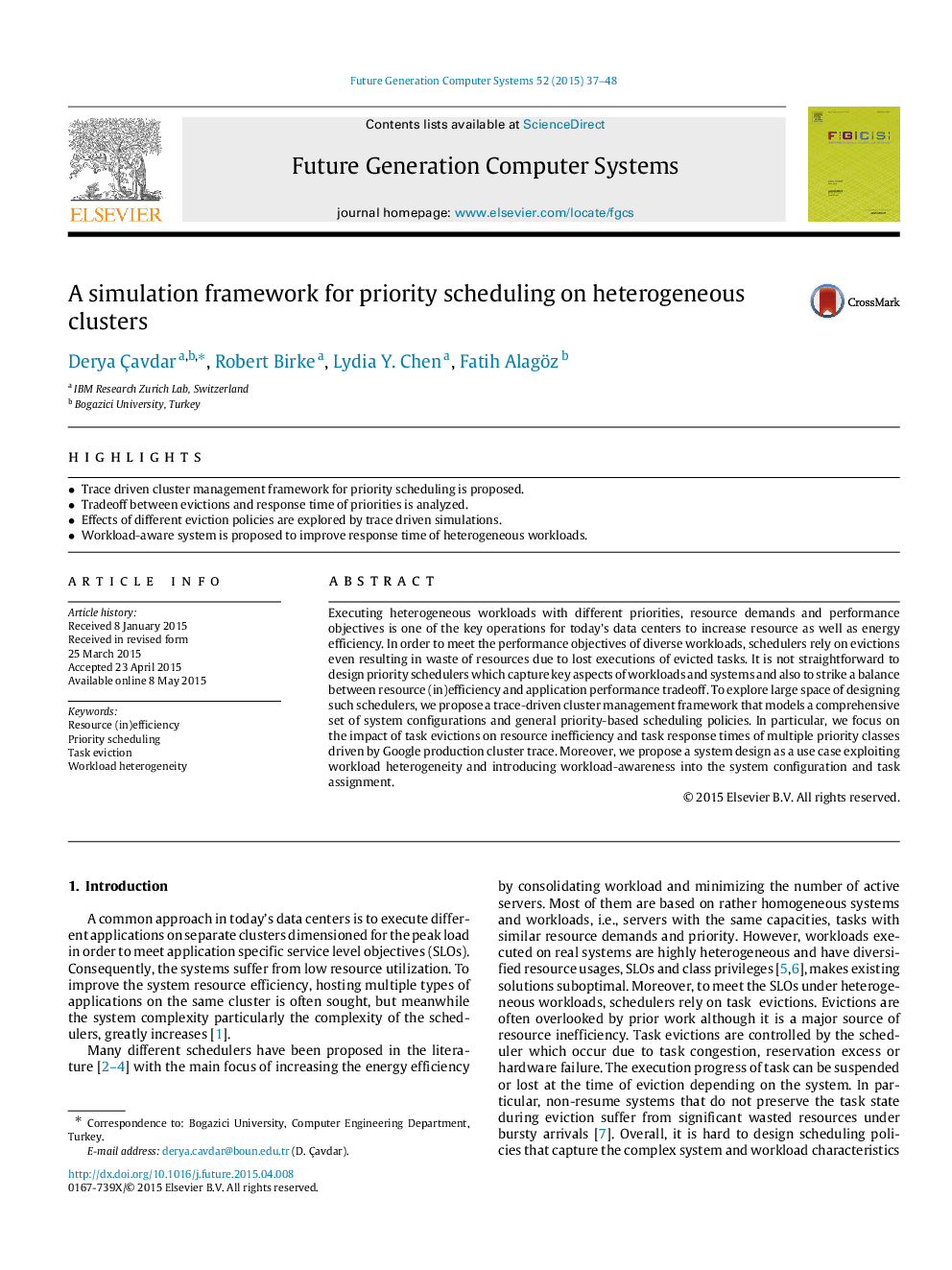| کد مقاله | کد نشریه | سال انتشار | مقاله انگلیسی | نسخه تمام متن |
|---|---|---|---|---|
| 425603 | 685784 | 2015 | 12 صفحه PDF | دانلود رایگان |
• Trace driven cluster management framework for priority scheduling is proposed.
• Tradeoff between evictions and response time of priorities is analyzed.
• Effects of different eviction policies are explored by trace driven simulations.
• Workload-aware system is proposed to improve response time of heterogeneous workloads.
Executing heterogeneous workloads with different priorities, resource demands and performance objectives is one of the key operations for today’s data centers to increase resource as well as energy efficiency. In order to meet the performance objectives of diverse workloads, schedulers rely on evictions even resulting in waste of resources due to lost executions of evicted tasks. It is not straightforward to design priority schedulers which capture key aspects of workloads and systems and also to strike a balance between resource (in)efficiency and application performance tradeoff. To explore large space of designing such schedulers, we propose a trace-driven cluster management framework that models a comprehensive set of system configurations and general priority-based scheduling policies. In particular, we focus on the impact of task evictions on resource inefficiency and task response times of multiple priority classes driven by Google production cluster trace. Moreover, we propose a system design as a use case exploiting workload heterogeneity and introducing workload-awareness into the system configuration and task assignment.
Journal: Future Generation Computer Systems - Volume 52, November 2015, Pages 37–48
